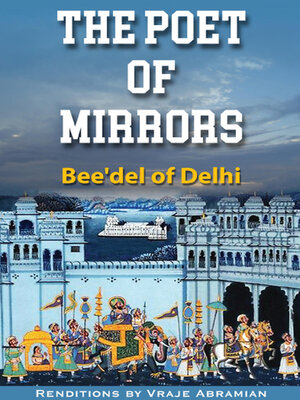
Sign up to save your library
With an OverDrive account, you can save your favorite libraries for at-a-glance information about availability. Find out more about OverDrive accounts.
Find this title in Libby, the library reading app by OverDrive.



Search for a digital library with this title
Title found at these libraries:
| Library Name | Distance |
|---|---|
| Loading... |
Mirza Abdolqader Azimabadi penname "Bee'del" (one who has lost or surrendered his heart) was born in Putna, India in 1644 CE and died in Delhi in 1721. He spoke Bengali, wrote poetry in Persian (Farsi), and was familiar with Arabic, Urdu, Bengali and Sanskrit. One of the most prolific and regarded poets of his day, his style is considered the glory of Persian poetry of Central Asian/Indian origin. Among many ethnic groups outside the present borders of Iran, whose culture/mysticism and literature is influenced by the Iranian culture and language, Bee'del is classified alongside Ha'fezan honor conferred on very few. Bee'del composed his first poems at age 10. As he became familiar with the teachings of the Sufis, he continued to frequent their gatherings throughout life. Their literature influenced both his work and his growing involvement in things of the spirit. Traveling widely in India, Bee'del became familiar with the ages-old Vedic teachings, which are strongly reflected in his work. As a mystic and dedicated practitioner of the Way, Bee'del refused to compose poems in praise of royalty or the rich and powerful, which was common practice at the time. Although Bee'del was and still is a favorite to many, the available material about and from him is rare, especially as his mystical understanding often required skillful editing to make it available to the average Farsi reader. Still, Bee'del's relevance to our times is obvious his message is informed by a universal regard for the inner life and potential of humans, regardless of geography, ethnicity or religion which is a basic tenet in all genuine spiritual teachings, including Sufism. As a Sufi poet, Bee'del urges us to attend to our most important task experiencing, as opposed to reading/hearing about, one's inner Origin/Essence and thus realize the true purpose of our existence.







